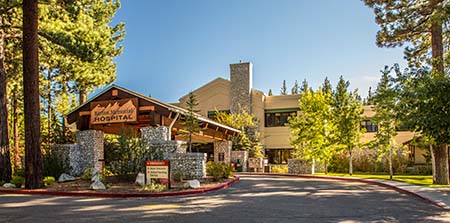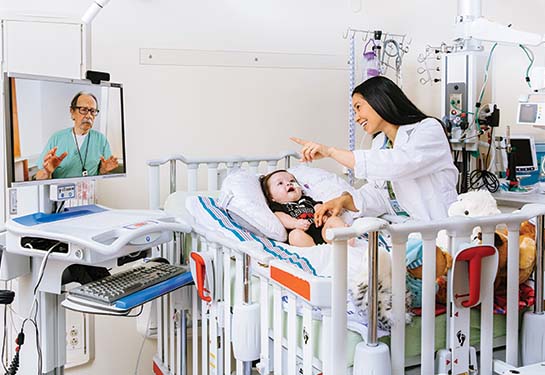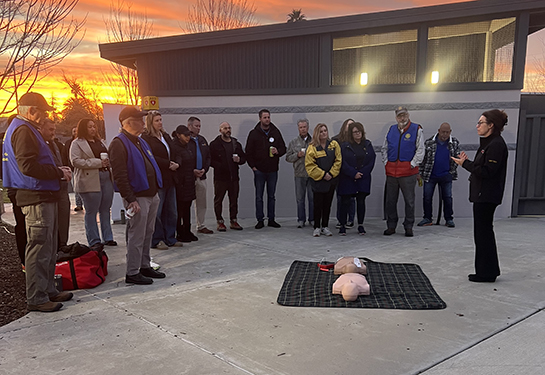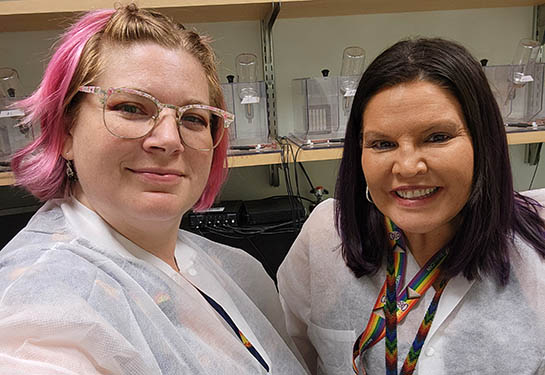Barton Health and UC Davis Health expand partnership to improve trauma care for children
Barton Memorial Hospital was chosen to participate in an ongoing clinical trial by UC Davis Health, aimed at improving trauma care for children in the region. The study was designed for pediatric trauma patients who require a transfer to a higher level of care. Prior to transfer, a virtual connection via telehealth is established with the team at UC Davis to allow greater communication with patients and their families and to facilitate communication between medical teams. The clinical trial evaluates the added value of a pre-transfer telehealth visit for patients and their families.
The telehealth platform is called a Virtual Pediatric Trauma Center (VPTC). It is utilized when pediatric patients are being considered for transfer to UC Davis Children's Hospital, a Level I Pediatric Trauma Center. The VPTC introduces parents to a liaison at UC Davis prior to a patient’s transfer. This visit not only improves communication between the families and the hospital, but also helps reduce patient and family distress during the transfer process.

“The ability of our nurses and doctors to actually see the patient and discuss the best plan for the patient and family is invaluable,” said James Marcin, director of the Center for Health and Technology at UC Davis Health. “With this program, we are able to talk via video with the parents and family members to prepare them for what will happen following the transfer to UC Davis. This process can be very scary and overwhelming, especially given the number of nurses and doctors that surround the injured child after their arrival. We believe that preparing the family and talking about the steps that will be taken can help reduce stress, anxiety, and questions regarding the pediatric trauma care process.”
As a Level III Trauma Center, Barton physicians can treat up to a certain level of acuity — the amount of medically related support needed by an individual — for traumatic injuries. Once the acuity level rises above the Level III Trauma threshold, a transfer becomes necessary.
Barton has strong partnerships and transfer agreements in place with regional Level II and Level I Trauma Centers, like UC Davis Medical Center — the only Level I Trauma Center in Northern California for pediatric and adult patients — to provide support for high-acuity cases quickly and as close to the patient’s home as possible.
With this program, we are able to talk via video with the parents and family members to prepare them for what will happen following the transfer to UC Davis. We believe that preparing the family and talking about the steps that will be taken can help reduce stress, anxiety, and questions regarding the pediatric trauma care process.” —James Marcin
Along with establishing provider-family contact via telehealth, the VPTC allows physicians to virtually view or share patient medical imaging, like X-rays and CT scans, which can reduce the need for extra radiation, and allows them to discuss treatment plans before the patient is transferred to UC Davis Children’s Hospital.
“Not all pediatric trauma injuries require a transfer, but in cases where one is necessary, this telemedicine collaboration improves communication with parents and caregivers, and lessens the worry factor that often comes with traumatic injuries,” said Kim Evans, trauma director and board-certified general surgeon at Barton Health.
This program brings the expertise of the UC Davis children's trauma team within the walls of Barton’s Emergency Department — especially beneficial in a mountain community, where active children ski, snowboard or participate in other sports that can cause serious injuries.
Ten hospitals in the Northern California region are participating in this program as part of a two-year active study. Barton Health and UC Davis Health began this collaboration on Feb. 21, 2022, which will run through November 2022. The medical centers will assess whether having the VPTC improves communication with the family and reduces patient and family distress before cementing the arrangement permanently.
This partnership expands on an existing Barton Health and UC Davis Health partnership. Barton currently works with UC Davis Children’s Hospital to ensure that at-risk newborns have access to UC Davis specialists and experts, including guidance from a neonatologist and neonatal specialists within the pharmacy, respiratory therapy, and nutrition departments. Learn more at BartonHealth.org.
FUNDING ACKNOWLEDGEMENT: This work was (partially) supported through a Patient-Centered Outcomes Research Institute (PCORI) Award [grant number IHS-2019C1-16093 to James Marcin].
DISCLAIMER: All statements in this report, including its findings and conclusions, are solely those of the authors and do not necessarily represent the views of the Patient-Centered Outcomes Research Institute (PCORI), its Board of Governors or Methodology Committee.






